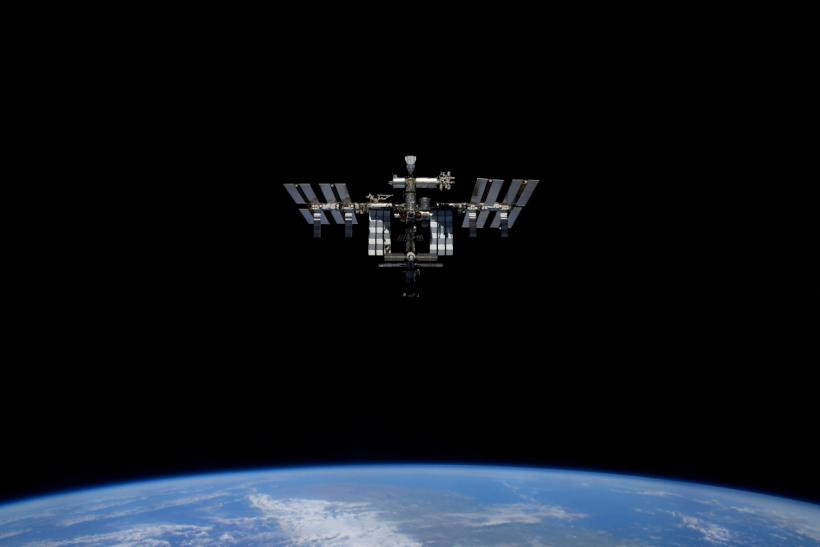The UK took a leap of faith to address the problem of space debris and sustainability in space exploration with a new funding announcement last week.
The UK government has announced an upgrade in space funding which would help the UK Space Agency to increase the lifespan of British-built satellites, tackling the space debris issue to a certain extent.
This is part of the UK government’s efforts to ensure that space exploration remains sustainable for the coming years, especially for future generations.
The UK Space Agency is getting a £2 million funding upgrade to the Satellite Applications Catapult’s In-Orbit Servicing and Manufacturing (IOSM) facility at the Westcott Space Cluster in Aylesbury. The IOSM facility will ensure that British-built satellites have unique capabilities which can be verified and validated by companies and space agencies.
The new space sustainability funding will help achieve a range of in-orbit operations including inspection, repair, assembly, servicing and manufacturing of satellites.
In addition to £2 million in funding, the UK government also allocated £1.5 million to conduct feasibility studies on refuelling satellites in space. This aims to increase the lifespan of satellites by allowing them to be refuelled in space, ultimately reducing space debris as satellites can be reused.
At present, around 37000 pieces of space debris above 10 cm in size is orbiting the Earth. The estimate increases to close to one million space debris if we consider debris less than 10 cm in size.
The UK wants to take the lead in the space debris and space sustainability issue as the race for space exploration calls for an increasing number of satellite launches from countries across the world.
In 2023, a record 2917 satellites started orbiting the Earth which is higher than 2485 in the previous year. Compared to that, only 216 entered the Earth’s orbit in 2016. This rise in satellites and space debris is from the advent of space tech companies like Elon Musk owned Space X which alone accounted for 98 satellite launches of the US 109 launches.
Earlier, last year, the government announced £65 million in funding to harness the full potential of the UK space sector and to address key issues affecting the industry.
Becoming a global leader in satellite refuelling technology by giving access to IOSM companies
Speaking about the new funding, the Minister for Space at the Department for Science, Innovation and Technology,
Andrew Griffith said: “Tackling space debris and maintaining ease of navigation in space is vital to allowing future exploration and protecting the everyday services we all rely on, from location and financial services to weather forecasting and broadband.”
Griffith stressed the satellite refuelling technology for long-term sustainability in space as “upgrading the national facility at Westcott” will help in a faster transition of innovations from the lab to the market, ultimately helping the UK economy.
This comes at a time when the UK Space Agency recently made satellite data available to UK companies to boost the economy.
“The UK’s IOSM facility at the Westcott Space Cluster will become the first in the UK capable of verification, validation and demonstration of in-orbit operations,” the Space Minister added.
The UK space sector will be supported by the IOSM facility upgrade as it will get access to large-scale equipment required for replicating the flight dynamics and orbital conditions. Through this, the core capabilities of the UK space sector like real-time positioning, gravity off-load system, dynamic tracking and orbital simulation environment could be enhanced.
With increased digital twin capabilities in the facility, the UK Space Agency can create better versions of in-orbit simulation robots which can double as space environments helping with the testing in the virtual world.
The CEO of the Satellite Applications Catapult which owns the IOSM facility, Lucy Edge underlined the potential of the UK in capturing the growing IOSM market, predicted to be worth £11 billion by 2031.
According to Lucy Edge, the UK space sector has the expertise to capture 25 per cent of the global market share and for that “UK IOSM companies have to get access to the infrastructure to test technologies” in mission operating conditions.
“Our new upgraded facility offers exceptional IOSM testing capabilities and supports the Catapult’s goals to grow the entire space industry in the UK,” said Edge.
She further explained how this IOSM funding will help meet “National Space Strategy goals for in-orbit servicing” and help the “UK Space Agency to develop space sustainability standards” like designing and operating sustainable spacecraft.
Three refuelling feasibility studies have been announced to support the space sustainability efforts of the UK Space Agency. These studies will explore ways of fulfilling the UK national debris removal mission and how to refuel a commercial satellite in orbit.
The Space Sustainability Head of the UK Space Agency, Ray Fielding said the funding shows the agency is “leading work to develop UK capabilities in performing in-orbit tasks, such as refuelling, and demonstrating leadership in more sustainable space operations”.
“Facilities like the IOSM centre at Westcott will support the UK’s ambition to become a leading nation in IOSM within the next decade. Until recently, satellites have been designed as one-shot items: non-refuellable with mission lifespans coming to an end when the satellite can no longer manoeuvre effectively,” Fielding added.
As part of the funding, three companies, Astroscale, ClearSpace and Orbit Fab, have been roped in for refuelling research.







